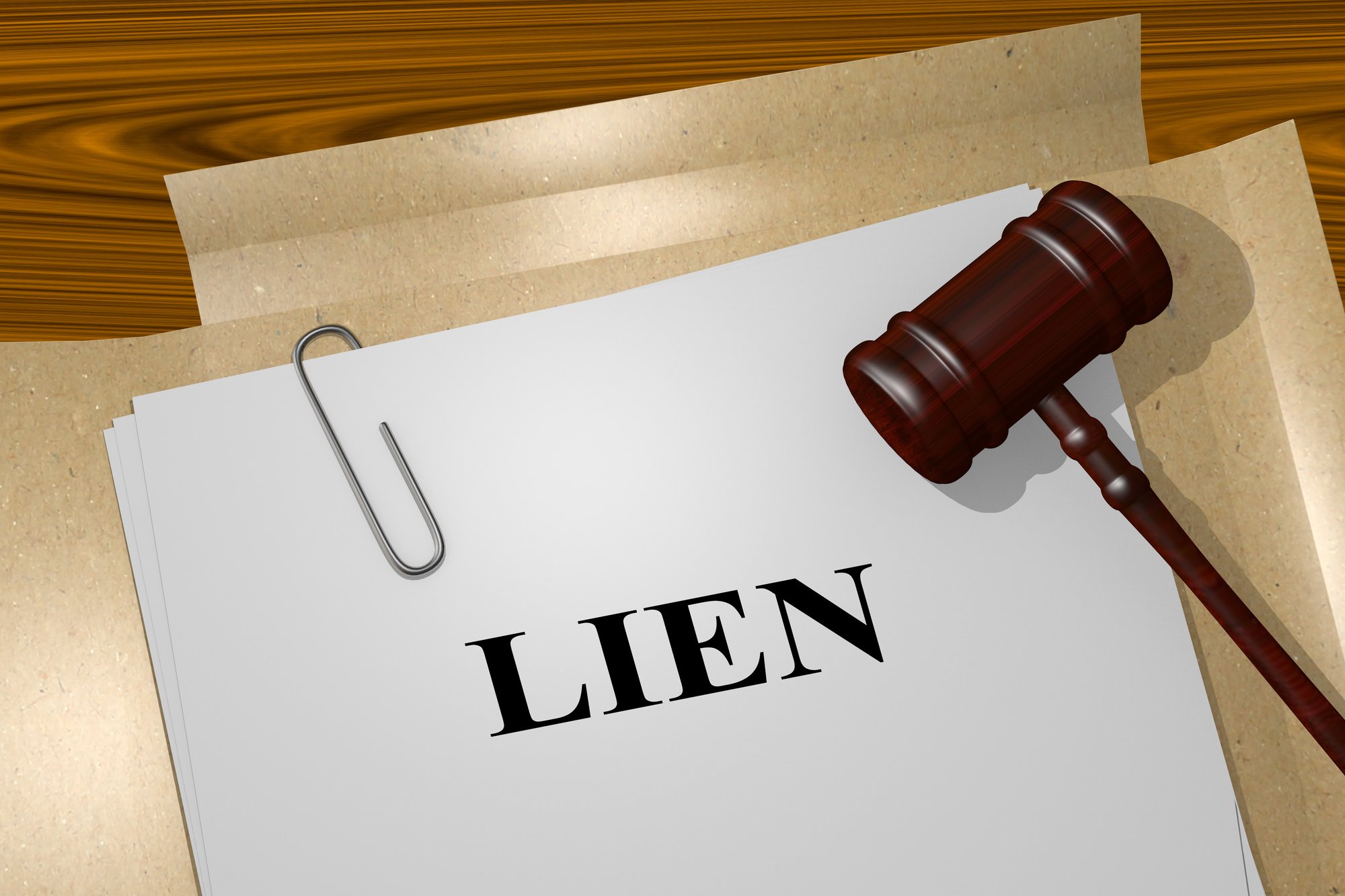Nearly 5.95 million homes have been sold in the United States in 2022. However, a significant number of these transactions involved a unique challenge: selling a house with a lien. The process can have a huge impact on your house sale.
As a result, a pertinent question arises: can a house be sold with a lien on it? Below is a comprehensive guide that navigates the intricacies of selling a house with a lien. Keep reading to learn more.
What is a Lien?
A lien is like a claim someone has on your house because you owe them money. Banks, contractors, or even tax authorities often use liens to make sure they get paid.
Property liens can be either voluntary or involuntary. These liens can have a significant impact on your property and your ability to sell it. Here are some of the main types of property liens you should know about:
Mortgage Lien
When you take out a mortgage to buy a house, the lender places a primary lien on your property. This lien serves as collateral for the loan. It usually takes priority over other liens.
If you already have a mortgage and want to borrow more against your home’s equity, you can get a second mortgage. This leads to a secondary lien. It acts as a second layer of debt on your property.
Tax Lien
The government can place a tax lien on your property if you owe back taxes. It does this to ensure you settle your tax debt.
Tax liens often have a high priority, even over primary mortgage liens. This is why a lot of mortgage lenders include property taxes in your mortgage payments.
Judgment Lien
A judgment lien occurs when a judge rules against you in a lawsuit and you owe damages. If you can’t pay the judgment, the creditor can place a lien on your property. Selling a property with a judgment lien usually requires court approval.
Child Support and Alimony Lien
If you fail to pay court-ordered child support or alimony, a lien can be placed on your property. This ensures that you fulfill your financial obligations. Selling your property with such a lien will also require court approval.
HOA (Homeowner Association) Lien
Homeowner associations can place liens on your property for unpaid dues and fines. Even if your mortgage payments are up to date, HOAs can still initiate foreclosure proceedings if allowed by state laws and the association’s rules.
Mechanics Lien
Mechanics liens often deal with construction work. You can get them if you don’t pay for construction services or materials. These liens can cloud your home’s title, making it difficult to sell.
Under this type of lien, you can get a supplier’s lien. This type of lien is often filed by contractors who supplied materials for your construction projects. Engineers, architects, and other designers can record designer liens if you don’t pay them for their services.
Can a House Be Sold With a Lien on It?
Selling a house with a lien may be challenging, but it’s doable. Things can get tricky if you have an involuntary lien, like a judgment lien. Selling your house with this type of lien may need a buyer to agree to pay it off, and that’s not always easy.
The worst are tax liens. If you owe taxes to the IRS, you may have to pay them before anything else. This can make a lien home sale a bit of a headache.
Luckily, you don’t have to handle it alone. You can involve a title company or hire a real estate attorney. These experts specialize in handling lien-related matters. As a result, they can make the process a little less stressful.
Also, you can sell your house “as is”. This means you’re selling the property in its current condition. When you opt for this type of sale, the buyer always assumes the responsibility for addressing the lien after purchase.
How Can Liens Affect a House Sale?
Liens on a property can affect the sale of your house. They can carry significant consequences too. Here’s how they influence the selling process:
Delay or Cancellation of Sale
All liens must be resolved before the home sale can move forward. Settling liens can be time-intensive as it often involves negotiations, payments, and legal procedures.
When you have delays in lien resolution, it can lead to frustration for both buyers and sellers. Extended delays may result in the cancellation of the sale as buyers may lose patience.
Possible Proceeds Settlement
If you have enough equity, the lien can be paid off from the proceeds of the sale. However, this means that your house’s cash offer will be reduced, and you’ll receive less money from the sale. Since the lien amount has priority, it must be paid before the transfer of your home’s title.
Do Liens Expire?
Liens are subject to varying statute of limitations laws in different states. While liens may expire under these laws, creditors often have the option to re-file them. This is why you should not wait for your lien to expire to conduct a sale.
The possibility of liens being re-filed can also add uncertainty to the sale process. What’s more, buyers may be wary of properties with a history of expired liens.
How to Navigate the Process of Selling a House with a Lien
Selling a property with a lien can be challenging. Yet, with the correct strategy, success is attainable. Here are the essential steps to consider:
Identify the Lien
Start by identifying the type of lien on your property. Collaborate with a real estate agent and a title company for a comprehensive property lien search. This search uncovers existing liens and financial obligations.
It also ensures transparency throughout the transaction. You can understand the specific obligations associated with each type of lien, such as:
- Mortgage Lien: The obligation is to repay your mortgage loan to the lender
- Tax Lien: Pay off the delinquent property and income taxes, along with any penalties
- Judgment Lien: Satisfy the judgment debt through payment or negotiation
- Child Support and Alimony Lien: Settle the outstanding support payments
- HOA Lien: Clear the unpaid association fees
- Mechanics Lien: Resolve the payment dispute with the contractor or supplier
Once you’ve identified and fully understood the nature and amount of each lien, you can prioritize which ones to address first.
Disclose the Lien to Potential Buyers
When you’re selling a house with a lien, honesty is key. You must let potential buyers know about the lien on your property. This transparency builds trust and avoids future legal issues.
Dispute or Negotiate the Lien
If you believe the lien is invalid or illegal, consult with an experienced lawyer. They can help you file a lien action in court to challenge the validity of the lien.
Laws regarding liens are complex and can vary. When your lien wasn’t filed properly, you may have grounds to dispute it. A legal professional can help you with it.
Additionally, you can propose a settlement to your creditor with the help of your attorney. These negotiations can involve consultations regarding payment plans, lien satisfaction, or even lien releases.
Clear the Lien
When you’re selling a house with a lien, the simplest way to clear it. This action clears the title and ensures a smooth closing process.
The easiest way to get rid of a lien is to settle the debt associated with it. Ensure you have the means to pay it off before proceeding. You can also consider using your home’s equity to cover the lien debt. This can be a practical option, but be cautious with your finances.
Get a Lien Release
When you’re selling a house with a lien, getting a lien release is usually a must-do. This piece of paper says the lien has been taken care of. This can help give confidence to potential buyers.
Once you clear the lien by paying off the debt or through negotiations, request a release. Contact the lien holder and ask for a release of the lien document. You may have to provide proof of the lien’s resolution, such as payment receipts or settlement agreements.
If you’ve already paid off a lien, but it still appears in public records, reach out to the relevant party. For example?
Review Options for Selling Your Home
Once you’ve resolved the liens on your property, it’s time to plan your home sale. Depending on your situation, you have several options to consider.
If your house is in good condition and you’re not in a hurry to sell, use a traditional real estate agent. They can market your home through the local Multiple Listing Service (MLS).
For a quick home sale, obtaining cash offers from investors is a viable alternative. You can sell your house in its current condition without the need for costly renovations. The process often moves fast, and you can close the deal in as little as 10 days.
Get Cash Offers for Your Lien Home Sale
Have you been wondering, “Can a house be sold with a lien on it?”
Yes, you can. At We Buy Houses Memphis, we specialize in buying homes with liens. Reach out to us and get cash offers today.




